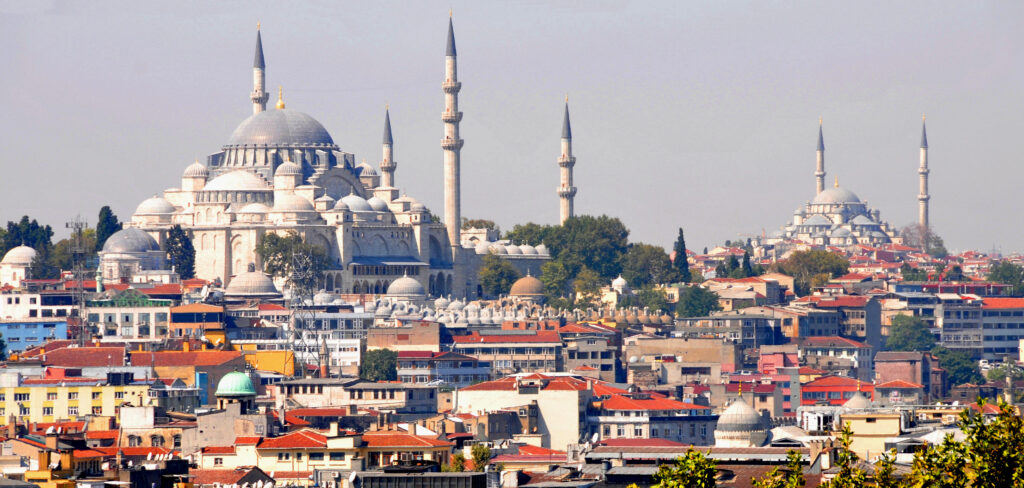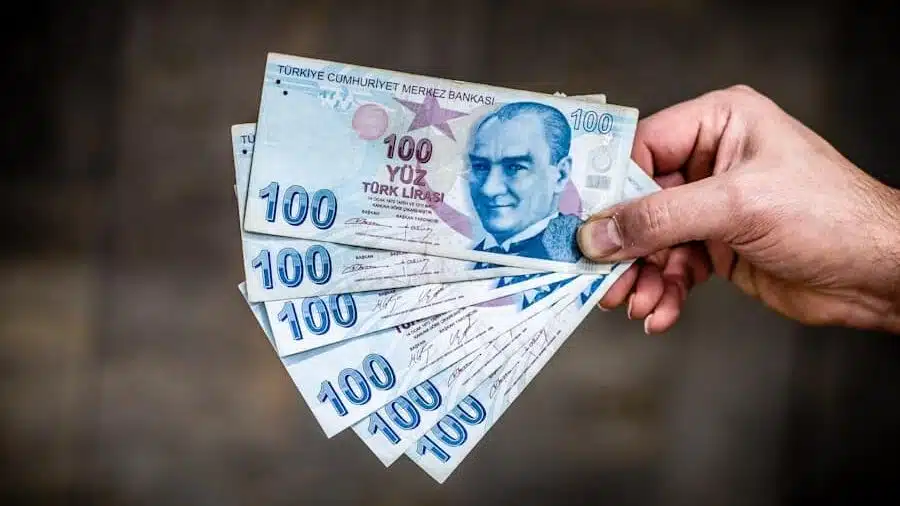When visiting Istanbul, understanding Money & Currency in Istanbul Turkey, payment options, and exchange rates is essential for a smooth trip. Whether you’re wondering what currency is used in Istanbul, if cards are accepted everywhere in Turkey, or how much cash you need in Turkey, this guide will help you prepare.
To make your trip even easier, we’ve also included related travel money topics such as tipping etiquette, ATM withdrawal fees, mobile payment apps, identifying counterfeit currency, safety tips for carrying cash, traveler’s cheque usage, and seasonal changes in exchange rates.

1. Understanding Currency in Istanbul & Turkey
What Is the Turkish Money?
Before you start spending in Istanbul, it’s worth knowing exactly what the local currency is, how it’s used, and what makes it unique for travelers.
Overview
The official currency of Turkey is the Turkish Lira (TRY), introduced in its current form in 2005 after a revaluation that removed six zeros from the old lira.
Daily Use
It’s used for all everyday transactions, including:
- Buying food at local markets
- Paying for public transport
- Visiting attractions
- Covering hotel stays
Structure & Denominations
The lira is divided into kuruş, with 100 kuruş making 1 lira.
Design & Features
Banknotes feature notable Turkish figures, most prominently Mustafa Kemal Atatürk, with each denomination showcasing different portraits, vibrant colors, and distinct designs that make them easy to tell apart for travelers. Coins often have the national emblem.
Banknote Designs & Figures
- ₺5 – Aydın Sayılı, a prominent Turkish historian of science, known for his groundbreaking work on the history of scientific thought; the note is light purple in color.
- ₺10 – Cahit Arf, a celebrated mathematician famous for the “Arf invariant” and contributions to algebra; the note is bright red.
- ₺20 – Mimar Kemaleddin, an influential architect from the late Ottoman and early Republican era, recognized for blending traditional and modern styles; the note is green.
- ₺50 – Fatma Aliye Topuz, one of the first female novelists in Turkey and a pioneer in women’s rights; the note is orange.
- ₺100 – Buhurizade Mustafa Itri, a classical Turkish music composer and poet from the Ottoman period; the note is blue.
- ₺200 – Yunus Emre, a beloved Turkish folk poet and Sufi mystic whose works emphasize love and humanism; the note is purple.
Security Tip
Understanding the look and feel of the lira can help you avoid counterfeit notes.
What Currency Does Turkey Use?
Nationwide Currency
Turkey uses the Turkish Lira nationwide in all regions, from major cities like Istanbul to remote villages.
Use of Foreign Currencies
While euros or US dollars may be accepted in some contexts such as hotels, high-end restaurants, and souvenir shops in popular tourist areas — especially in Istanbul and coastal resorts — the exchange rate will usually not be in your favor and can include hidden conversion costs.
Why Carry Lira
Carrying lira ensures you get better value, particularly in local markets, public transport, and smaller shops.
What Currency Is Used in Istanbul and Turkey?
Official Currency
The official currency in Turkey, including Istanbul, is the Turkish Lira (TRY). If you’re asking what currency does Istanbul use, the answer is the same throughout the country — the lira.
Denominations
Banknotes come in denominations of 5, 10, 20, 50, 100, and 200 TRY, while coins range from 1 kuruş to 1 lira.
ATM Tips
Most ATMs dispense 50, 100, and 200 TRY notes, so consider withdrawing smaller amounts when possible or breaking large bills at supermarkets, banks, or larger stores for convenience. This is especially useful for taxis, tips, and small purchases.
Does Istanbul Use the Same Currency as the Rest of Turkey?
Yes. Istanbul money is no different from other Turkish cities. However, in tourist-heavy areas, some shops and hotels may accept euros or US dollars, particularly to cater to European visitors. Still, paying in cash in Turkey using lira will give you better rates, more bargaining power in markets, and help you blend in like a local.
Is Turkey in the Euro?
No, Turkey is not in the Eurozone, and the euro is not its official currency. While some businesses in Istanbul may accept euros, prices will often be higher than if you pay in Turkish Lira. For the best value, exchange your money to lira before making purchases.
Istanbul Money: Quick Facts for Tourists
- Currency code: TRY
- Symbol: ₺
- Primary usage: All transactions in Turkey
- Tourist tip: Always check the exchange rate before making large purchases.
2. Using Cash in Istanbul
How Much Cash Do You Need in Turkey?
The amount of cash needed in Turkey depends on your travel style. Budget travelers might get by with 600–800 TRY per day, while mid-range travelers may need 1,000–1,500 TRY daily for meals, attractions, and shopping.
Is Cash Still Commonly Used in Istanbul?
Yes. While Istanbul is modern and card-friendly, many smaller shops, street vendors, and traditional markets prefer cash in Turkey. It’s wise to always carry some banknotes for convenience.
Tips for Managing Your Cash in Istanbul
- Use ATMs in banks rather than standalone machines for security.
- Avoid exchanging large sums at airports — rates are often poor.
- Keep small bills for taxis, markets, and local shops.
- Be mindful of ATM withdrawal fees.
- Consider using mobile payment apps where available.
3. Using Credit & Debit Cards in Turkey
Is Card Accepted Everywhere in Turkey?
In large cities like Istanbul, most hotels, restaurants, and stores accept cards. However, in rural areas and at small vendors, cards are not accepted everywhere in Turkey, so cash is essential.
Where You Can (and Can’t) Use Your Card in Istanbul
You can use cards in:
- Hotels – Most mid-range and upscale hotels in Istanbul accept Visa, Mastercard, and often American Express.
- Chain restaurants and cafes – International and national chains typically accept cards, making them convenient for quick meals.
- Major tourist attractions – Many museums, galleries, and historical sites have card payment facilities, especially in central areas.
You may need cash for:
- Street food vendors – Popular for simit, döner, and other local snacks, these vendors often only accept cash.
- Local markets (bazaars) – Places like the Grand Bazaar and Spice Bazaar are primarily cash-based, especially for small purchases and bargaining.
- Small souvenir shops – Family-run stores and stalls may prefer cash to avoid card fees, particularly in less touristy neighborhoods.
4. Currency Exchange & Conversion
Currency Exchange in Istanbul, Turkey: Best Places & Rates
For the best currency exchange in Istanbul, Turkey, avoid airport kiosks. Instead:
- Use exchange offices (döviz) in tourist areas like Sultanahmet or Taksim.
- Compare rates before committing.
- Withdraw lira from reputable ATMs.
How to Get the Best Exchange Rates in Istanbul
- Track daily rates online before exchanging.
- Avoid exchanging late at night — some places offer worse rates.
- Use a travel card with low foreign transaction fees.
Should You Exchange Money Before Traveling to Istanbul?
It’s best to carry a small amount of local currency before arrival for taxis or snacks. However, you’ll generally find better exchange rates in Istanbul than in your home country.
5. Additional Travel Money Tips
Tipping Etiquette
- Learn tipping etiquette in Istanbul, including when to tip in restaurants, taxis, and hotels, and what amounts are customary.
- In restaurants, 5–10% of the bill is typical if service is not already included.
- For taxis, rounding up to the nearest lira is common practice.
- Hotel staff such as porters may be tipped 10–20 TRY per bag.
- Tour guides generally expect a tip of 10–15% of the tour price for excellent service.
Currency Safety
- Watch for counterfeit currency and know how to identify it by checking watermarks, holograms, and texture.
- Keep money in separate places to minimize loss, such as splitting it between a money belt, wallet, and hotel safe.
- Avoid showing large amounts of cash in public.
- Use hotel safes or lockable bags when possible.
- Be cautious when strangers offer currency exchange on the street.
Payment Methods
- Avoid traveler’s cheques — they are rarely accepted and often incur high fees.
- Use contactless payments or mobile wallets where accepted for added convenience.
- Carry at least one backup card from a different network (Visa/Mastercard) in case of technical issues.
- Inform your bank about your travel dates to avoid card blocks.
Exchange Rate Awareness
- Check seasonal changes in exchange rates before your trip, as rates can fluctuate during peak tourist seasons and holiday periods.
- Monitor live rates using currency conversion apps.
- Exchange smaller amounts more frequently if rates are unstable.
- Avoid exchanging money late at night or in isolated locations.
